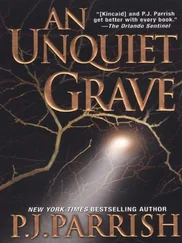P. Parrish - South Of Hell
Здесь есть возможность читать онлайн «P. Parrish - South Of Hell» весь текст электронной книги совершенно бесплатно (целиком полную версию без сокращений). В некоторых случаях можно слушать аудио, скачать через торрент в формате fb2 и присутствует краткое содержание. Жанр: Триллер, на английском языке. Описание произведения, (предисловие) а так же отзывы посетителей доступны на портале библиотеки ЛибКат.
- Название:South Of Hell
- Автор:
- Жанр:
- Год:неизвестен
- ISBN:нет данных
- Рейтинг книги:5 / 5. Голосов: 1
-
Избранное:Добавить в избранное
- Отзывы:
-
Ваша оценка:
- 100
- 1
- 2
- 3
- 4
- 5
South Of Hell: краткое содержание, описание и аннотация
Предлагаем к чтению аннотацию, описание, краткое содержание или предисловие (зависит от того, что написал сам автор книги «South Of Hell»). Если вы не нашли необходимую информацию о книге — напишите в комментариях, мы постараемся отыскать её.
South Of Hell — читать онлайн бесплатно полную книгу (весь текст) целиком
Ниже представлен текст книги, разбитый по страницам. Система сохранения места последней прочитанной страницы, позволяет с удобством читать онлайн бесплатно книгу «South Of Hell», без необходимости каждый раз заново искать на чём Вы остановились. Поставьте закладку, и сможете в любой момент перейти на страницу, на которой закончили чтение.
Интервал:
Закладка:
Louis glanced at his watch.
“I’ll ask you again. You got somewhere to go, peeper?” Shockey said.
Louis looked across the table at Shockey. He was about forty but looked older. And in that moment, everything about the man seemed to crystallize. He was a dinosaur, assigned to brush the dust off a few cold cases while the young cops — the ones with diplomas — were pushing their way up in the ranks. Shockey was hearing their footsteps and was probably fighting like hell to hang on to his gold badge. Solving the case of a missing wayward wife in quiet little Ann Arbor just might help him do that. At least, for a few more years.
Louis knew, too, why Shockey had wanted to meet here instead of at the police station. He didn’t want the other cops to know he had to call on a PI to help him do his job.
“Look,” Louis said, “all I did was spot the vehicle. I sent my report to Livingston. The car was towed, and I was done. What the hell could I offer the case now?”
“You searched the car, right?”
“Of course I did. It was procedure.”
“You search it good?”
“Yeah, I searched it good.”
“You sure about that, peeper?”
What was this? He didn’t need this shit. First, he couldn’t get a cheeseburger, and now this old wash-up was on his case. But even as his body was tensing to get up and move forward, get on the road so he could see Joe, his brain was moving backward.
Back to that night at the train station, standing out in the bone-chilling sleet, chipping at the ice on the door handles so he could look inside the car. The car was unlocked, and he found nothing inside but cigarette butts and an old Arby’s bag. The trunk latch was broken, held closed by a rusted coat hanger. Cold, wet, and miserable, he had run his flashlight over the mess of tools and old newspapers, slammed the trunk shut, and retreated to his squad car to call it in.
He met Shockey’s eyes across the table. The question was still there.
“I didn’t miss anything,” Louis said.
“I still got the car,” Shockey said. He had the barest grin on his face. It pissed Louis off.
“How about if we go take another look?” Shockey said.
The impound lot was in a neighborhood of trailer parks and storage rental barns out by the airport. Shockey pulled the sedan up to the gates of the razor-wired chain-link fence, got out and hustled to the gates.
Louis watched through the slow sweep of the wipers as Shockey unlocked the heavy padlocks and swung the gate open. Louis was staring at the big yellow sign that shouted beware attack dogs as Shockey slid back into the driver’s seat.
“What about the dogs?” Louis asked.
“There’s no friggin’ dogs,” Shockey said, putting the car into gear.
Once inside the lot, Shockey parked the sedan at the side of a large metal hangar of a building. Louis got out into the cold drizzle.
A low whining noise drew his eyes up, but he couldn’t see anything in the rapidly fading light. The whine grew into an ear-splitting scream as a smudge of lights emerged from the clouds. Louis almost ducked as the jet streaked overhead and was gone.
“This way,” Shockey said.
They walked behind the building, down a row of cars, which seemed to grow older and dirtier the farther they went. They passed some motorcycles, a few boats on trailers, and an old tractor. Then came rows of old refrigerators, bicycles, and a stack of doors. The farther they went into the yard, the rustier and more random the piles of debris became. It was like some old cemetery where the fresh graves still had someone to tend them while the old ones had long been abandoned.
Louis stopped and lifted a plastic-encased tag hanging from a rusty bicycle. Written on it was a case number, a scribbled name, and the year: 1968.
“How long you guys keep this stuff?” Louis asked.
“Forever,” Shockey said, walking on. “A few years back, we had a guy who was awarded a new trial after twenty years in the pen. Lucky us, we still had the evidence, and he was convicted again.”
Louis followed Shockey around the corner of the building. The red Falcon was parked nose-in against the fence. A weather-worn tarp covered the front end, but the wind had blown it up to expose the trunk. Shockey sighed in disgust as he brushed mud and dead leaves from a back window. Then he looked back at Louis.
“This is it,” Shockey said.
Louis stepped closer and peered in the side window. The interior was clouded with gray shadows, but there was enough light to see. The ashtray was still stuffed with butts, and the Arby’s bag was still in the backseat.
“Have you had anything examined yet?” Louis asked. “Dusted the car for prints?”
“Not yet,” Shockey said. “This sat here for nine years. I told you, I just recently reopened the case.”
“Okay,” Louis said. “What was it I was supposed to have missed?”
The trunk was still secured only by the rusty coat hanger. Shockey unwound the wire and lifted the trunk. Louis peered inside. At first, he saw the same tools and old newspapers he had seen nine years ago, but then his eye caught something else. Tucked under a crumpled Detroit Free Press, the strap of a bra.
He picked up a screwdriver and used it to lift the newspaper. The bra was once white, but the fabric was dull and yellow now, the lace across the left cup rotting away. The right cup was smeared with a brown liquid.
Blood.
Louis looked at Shockey. His first impulse was to deny the existence of the bra back in 1980, but the truth was, he couldn’t be absolutely sure. In the dark and in a hurry to wrap up a report on an abandoned vehicle, it was possible he missed it.
“So, what’s the problem?” Louis asked. “This is evidence of a crime. Why haven’t you bagged it and turned it over to the lab?”
“This is why,” Shockey said. He reached into his raincoat for a piece of paper and handed it to Louis.
It was a report — his 1980 report on locating the Falcon. And it was not a copy. It was the original. Louis scanned it quickly.
Upon a routine search of the vehicle and the trunk, I arranged a tow. Tow truck responded at 12:45 a.m. Notification made to AAPD detectives and to Livingston County 12/11/80 that vehicle wanted in their BOLO had been located at 325 Depot Street, Ann Arbor, Mich. Neither Owen Brandt, owner of the vehicle, nor ATL subject, Jean Brandt, was on scene.
Louis handed the report back to Shockey. “I still don’t understand what the problem is. This report is accurate and doesn’t change your finding the bra.”
“I don’t think that’s how a defense attorney is going to see it,” Shockey said.
“What are you talking about?”
“Look at it this way,” Shockey said. “The wife disappears in December 1980. Her car is found a week later, and a cop searches it and puts in writing that there was nothing in the car to indicate a crime. Nine years later, a bloody bra turns up in the trunk.”
“Stuff like that happens.”
“It could happen if there hadn’t been a search of the trunk in 1980,” Shockey said. “Aren’t you smart enough to see how a defense attorney will play this?”
“Why don’t you tell me?”
“Okay, you’re up on the stand,” Shockey said. “Officer Kincaid, you put in your report you searched the trunk. Inside were some tools and old newspapers. Did you move the newspapers, officer? Of course I did. Did you have a flashlight, Officer? Of course I did. Then how come you didn’t see the bra, Officer? Could it be you didn’t see it because it was planted later by the police?”
Louis looked back at the trunk. He understood what Shockey was saying. He’d faced enough defense lawyers to know how things could get twisted, but he wasn’t sure that’s what this was about. The trunk wasn’t that cluttered. There was a screwdriver, a wrench, and a crowbar. An old can of oil and some newspapers. Even in the sleet, he would have sifted through it. It was procedure, and back then, he never broke procedure. No way did he miss this bra.
Читать дальшеИнтервал:
Закладка:
Похожие книги на «South Of Hell»
Представляем Вашему вниманию похожие книги на «South Of Hell» списком для выбора. Мы отобрали схожую по названию и смыслу литературу в надежде предоставить читателям больше вариантов отыскать новые, интересные, ещё непрочитанные произведения.
Обсуждение, отзывы о книге «South Of Hell» и просто собственные мнения читателей. Оставьте ваши комментарии, напишите, что Вы думаете о произведении, его смысле или главных героях. Укажите что конкретно понравилось, а что нет, и почему Вы так считаете.












